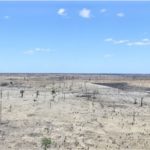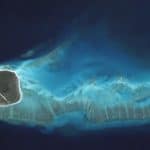The scattered islands (Iles Eparses):
France does not respect geography, history or international law.
After decades of French rule, Madagascar gained its independence on June 26, 1960, and celebrated its 60th anniversary last year.
But on Wednesday, October 23, 2019, President Emmanuel Macron made a stop on Grande Glorieuse Island off the coast of Madagascar and saw fit to commemorate it:
"Here, this is France, this is our pride, our wealth," adding these sibylline words:
"This is not a hollow idea.
"However, to say "this is mine", regardless of geography, history and international law, is indeed a "hollow idea", even a provocation, as it is rightly perceived by the Malagasy population.
Juan de Nova, gas in the water between Madagascar and France...
If there is one question that has remained unanswered since the beginning of the Malagasy crisis in 2009, it is this:
What is at stake for France to intervene so relentlessly and consistently in this crisis?
The question of Juan de Nova, this 5 km² island in the middle of the Indian Ocean, offers a possible and probable answer to this question.
The scattered islands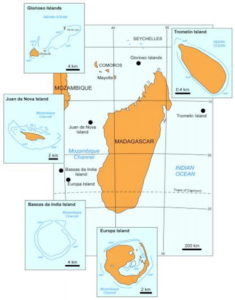
This chain of islands, anchored in the Mozambique Channel, on the "oil highway" halfway between Africa and Madagascar, is of clear geostrategic interest. Crucial economic issues have also developed with the establishment of the principle of the Exclusive Economic Zone (EEZ) in 1982 through the Montego Bay Convention, which extended a country's jurisdiction to 200 miles off its shores.
These territories, administrative dependencies of the Big Island annexed to France in 1896, which declared Madagascar and its dependent islands a French colony, should have been returned to Madagascar when it declared independence on June 26, 1960.
On the contrary, the decree of April 1, 1960, promulgated in extremis by the French State, separated the scattered parts of the territory of the "Autonomous Republic of Madagascar" to place them under the authority of the Minister of Overseas.
This annexation was only belatedly challenged by Madagascar in 1973, when then President Ratsiraka first raised the issue of Malagasy sovereignty over the Dispersed Islands.
In 1979, resolutions of the Group of Non-Aligned Countries and then of the United Nations, in the form of recommendations, called on France, blacklisted by the international community, to return these arbitrarily separated islands to Madagascar or at least to enter into negotiations for their reintegration.
 The question of the future of Scattered Islands is not discussed again until 1999 at the Indian Ocean Commission Summit, where it is decided to establish co-management of the Tromelin islands and the Scattered Islands by France, Madagascar and Mauritius. This proposal will be finalized by a first agreement between Mauritius and France in 2010.
The question of the future of Scattered Islands is not discussed again until 1999 at the Indian Ocean Commission Summit, where it is decided to establish co-management of the Tromelin islands and the Scattered Islands by France, Madagascar and Mauritius. This proposal will be finalized by a first agreement between Mauritius and France in 2010.
Oil companies' interest in the exploration and offshore resources of the area was aroused after the publication in 2003 of a report by Rusk Bertagne Associates & TGS-nopec "Petroleum Geology and Geophysics of the Mozambique Channel", based on the exclusive use of seismic data from French research organizations, which had previously been ignored by oil companies.
This interest is made all the more compelling by the fact that deepwater and ultra-deepwater offshore exploration and exploitation techniques have now been mastered.
It turns out that Juan de Nova exactly in the middle of this area of the Mozambique Canal which is of interest to all who live on its shores because it is envisaged as a new "North Sea".
The potential for deepwater oil and gas resources is evidenced in the east by the Bemolanga/Tsimiroro and Manambolo fields, in the west by the presence of huge natural gas fields recently discovered offshore Mozambique and Tanzania, and in the southwest by the operating Pande & Temane gas fields in Mozambique.

An exploration license on a "Deep Belo" block, which is exactly adjacent to the JDNMP block, was awarded by OMNIS and the Malagasy government to the JDNMP oil operators.
One idea was generally accepted: Juan de Nova's exploration programs supported the hypothesis of a major French interest in the Bemolanga oil fields.
But if, after three 3 years of exploration, Total decides to just as "easily" abandon the Bemolanga project, isn't France more concerned with Juan de Nova, a territory that claims to be French and whose fossil fuel potential could make France a future member of OPEC?
Decree No. 78-146 of February 3, 1978, establishing an economic zone off the coasts of the islands of Tromelin, Glorieuses, Juan de Nova, Europa, and Bassas da India, states that "[t]he economic zone [...] shall extend off the coasts of the islands of Tromelin, Glorieuses, Juan de Nova, Europa, and Bassas da India from the limit of territorial waters to 188 nautical miles beyond that limit, subject to delimitation agreements with neighboring States. "
The Malagasy Petroleum Code of 1996 refers to this as follows: "Art.6- For the purposes of this law, [...] "territory of the Republic of Madagascar" means the land area, the continental shelf, the exclusive economic zone, the territorial waters as defined by the law and the international conventions expressly ratified".
With a distance of 150 km from the Malagasy coast, Juan de Nova should naturally be integrated into Madagascar's 200-mile EEZ. So, in principle, the French and Malagasy EEZs are in TOTAL OVERRIDGE.
This question of demarcation of the French and Malagasy zones is therefore essential.
Although an agreement was reached in 2005 between France and Madagascar regarding Réunion and the delimitation of the respective Malagasy and French EEZs, no action has been taken regarding the dispersed islands.
Until the boundaries of each EEZ are negotiated and delineated, or at least a co-management agreement is in place, no one owns anything.
In the absence of a definition of the limits of the territorial jurisdiction of France and Madagascar over this zone, the legality and legitimacy of the concessions and permits granted to oil companies operating in this disputed area may be questioned.
Without an agreement and negotiations, especially between the French and Malagasy states, these enormous fossil energy resources, if they exist, cannot be exploited.
Scattered islands: The silence of the Malagasy authorities
"By June, on the Iles Glorieuses (one of the scattered islands) a national nature reserve is being created, I was there a few months ago".

This is in fact the third statement of the French leader on these islands claimed by Madagascar since his visit to the Indian Ocean in October 2019.
During his passage in the Indian Ocean, Emmanuel Macron, pausing in the glorious islands, had declared, "Here is France."
"Here is France" for the French, there is Madagascar under International Law.
This statement came a few weeks before the first meeting of a joint Franco-Malagasy committee to manage the scattered islands.
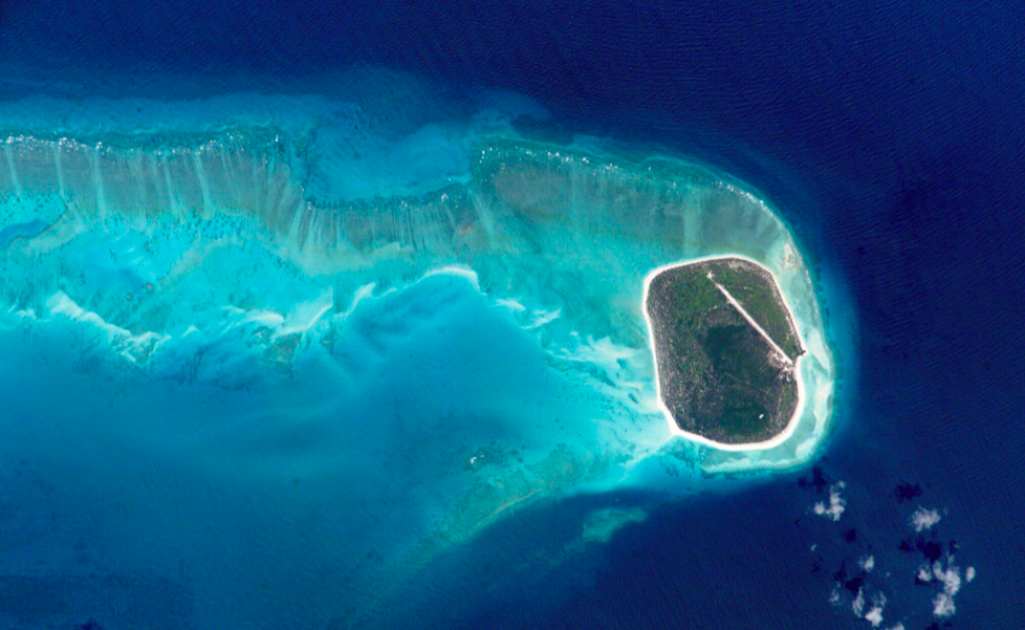
In May 2019, following his first meeting with Malagasy President Andry Rajoelina, Emmanuel Macron said he had had "a very frank and direct conversation" about the islands. He had subsequently announced that he had found a common solution with the Malagasy president without legal recourse.
At that time, the two heads of state announced the establishment of a committee to study the joint administration of these scattered islands.
Total silence reigned on the side of the Malagasy authorities after the national consultation on the dispersed islands was held in Ivato (Madagascar) in December. Even more so, at the end of the three-day citizen consultation workshops, no concrete resolution demanding the return of these islands to Madagascar became clear.
In January, the French ambassador to Madagascar revealed that the French side had already proposed a date for the second meeting of the Joint Committee for the Dispersed Islands, but apparently no action was taken for the time being.
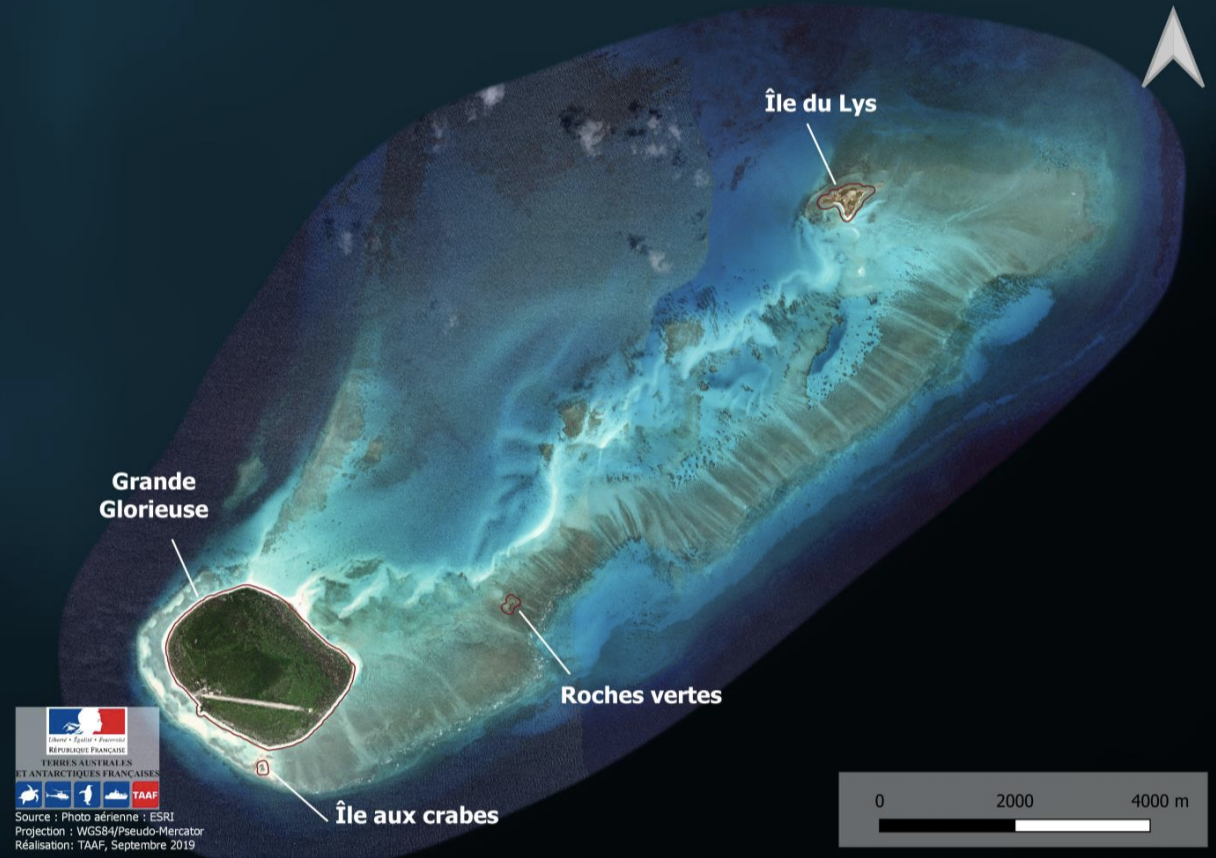
The expert on international relations, Julien Radanoara, reiterated that it is up to the Malagasy to take the necessary steps to demand the return of these islands.
"For the French, the Scattered Islands represent a strategic position and they will continue to do whatever is necessary to try to keep them for themselves," he said.



